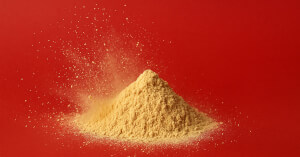
The most effective Supplements to Support Lactation and Boost Milk Supply

Breastfeeding is one of the most natural ways to nourish your baby, but for many new moms, producing enough milk can be a real challenge.
If you're feeling like your supply isn't quite where you want it to be, you're not alone. Nutrition, hydration, and stress all play a part in how your body produces milk, and sometimes supplements can provide the extra support you need.
This guide looks at the most effective, research-backed supplements that can help support healthy lactation and milk production.
All are generally considered safe when used appropriately, but it's best to talk with your healthcare provider before starting anything new.
Why Some Moms Struggle With Milk Supply
Milk production depends on hormones like prolactin and oxytocin. When these hormones are disrupted by stress, fatigue, dehydration, or poor nutrition, milk supply can drop. Certain health conditions, like thyroid imbalance or anemia, can also make it harder for the body to keep up with breastfeeding demands.
While frequent nursing and good hydration are essential, specific nutrients and herbs can help support the body's natural lactation process. These are often called galactagogues, natural substances that may increase milk flow and production.
The Best Natural Supplements for Milk Production
1. Fenugreek
Fenugreek is one of the most popular and well-studied lactation supplements. It contains phytoestrogens, plant compounds that act similarly to the hormone estrogen and may help stimulate milk glands. Many moms notice an increase in milk supply within a few days of starting fenugreek.
In a clinical study from 2018, women who took fenugreek tea three times a day produced significantly more milk compared to a placebo group. Some mothers report a mild "maple syrup" smell in sweat or urine, which is harmless but worth noting.
✔️ Typical Dosage Range: 500-1000 mg three times daily, or one cup of fenugreek tea up to three times per day.
2. Blessed Thistle
Blessed thistle is often paired with fenugreek to enhance its effects. It may help stimulate prolactin production, the hormone responsible for milk synthesis. Some women also find it helps with digestion and overall recovery after childbirth.
It's important to choose a supplement made from the whole herb, not just extracts, for the best effect. Although not as heavily studied as fenugreek, traditional use and small studies suggest it can support consistent milk flow.
✔️ Typical Dosage Range: 300-500 mg two to three times per day, often taken with fenugreek.
3. Moringa
Moringa is rich in iron, calcium, vitamin C, and amino acids. It has been used for centuries as a food and medicine in Asia, and research shows it may increase milk supply within a few days of use. Scientists believe its high nutrient content supports hormone production and glandular health.
In a clinical trial from 2021, mothers who took moringa capsules twice a day had a 25% increase in milk volume after one week compared to a control group. It's also well tolerated and provides additional nutrition for moms who may be low in minerals after childbirth.
✔️ Typical Dosage Range: 500-1000 mg twice daily, or 1-2 teaspoons of powdered moringa added to smoothies or food.
4. Fennel Seed
Fennel seed has a long history as a digestive aid and milk-boosting herb. It contains a compound called anethole, which mimics estrogen in the body and may help stimulate milk ducts. Some lactation teas combine fennel with other galactagogues for added benefit.
In a 2017 study, women who drank fennel tea daily during the first postpartum week had improved milk flow and fewer reports of colic in their infants. It can also relieve bloating and help digestion, a bonus for new moms.
✔️ Typical Dosage Range: 1-2 grams of crushed fennel seed steeped in hot water, once or twice per day.
5. Shatavari
Shatavari is an adaptogenic herb from Ayurvedic medicine known for balancing female hormones and supporting reproductive health. It may increase prolactin levels and help restore hormonal equilibrium after birth, which can indirectly support milk production.
In a small clinical study, mothers who took shatavari for four weeks showed higher prolactin levels and greater milk volume compared to a control group. It's also considered a gentle tonic for energy and recovery in postpartum women.
✔️ Typical Dosage Range: 500-1000 mg per day, often in capsule or powder form.
6. Goat's Rue
Goat's rue is a European herb thought to promote the development of mammary tissue. This may help mothers with low glandular tissue or those who had breast surgery. Some lactation consultants recommend it in combination with other herbs for women who didn't experience much breast growth during pregnancy.
Although modern studies are limited, historical evidence and user reports suggest that goat's rue can help with consistent, gradual improvements in milk volume.
✔️ Typical Dosage Range: 250-500 mg two to three times per day, usually as part of a lactation herbal blend.
7. Omega-3 DHA
While not a galactagogue, omega-3 DHA is essential for both mother and baby during breastfeeding. It supports the baby's brain and eye development and contributes to the fatty acid profile of breast milk. Many mothers are deficient in omega-3s after pregnancy, which can also affect mood and recovery.
Supplementing with DHA ensures your milk contains enough of these beneficial fats, even if you don't eat much fish.
✔️ Typical Dosage Range: 200-500 mg of DHA daily from fish oil or algae oil.
Suggested Stack for Lactation Support
You don't need to take every supplement listed above at once. Start simple and choose one or two that fit your needs. For most breastfeeding moms, a practical stack includes fenugreek and moringa for milk production, plus omega-3 DHA for overall milk quality and baby's brain development.
If you prefer herbal blends, pairing fenugreek with blessed thistle is a common and gentle combination used by lactation consultants. Always introduce new supplements one at a time so you can monitor how your body and your baby respond.
Keep in mind that consistent nursing, hydration, and rest remain the strongest tools for maintaining a healthy milk supply. Supplements are most effective when they support, not replace, those basics.
Other Ways to Support Milk Supply
Supplements can be a great addition, but they work best when combined with good daily habits. Try to nurse or pump frequently, stay well hydrated, and eat enough calories from nutritious foods. Skin-to-skin contact and rest are also powerful ways to support hormonal balance and milk letdown.
- Feed on demand instead of on a strict schedule
- Drink plenty of water and herbal teas (without caffeine)
- Reduce stress as much as possible
What to Avoid
Some herbs and foods can actually reduce milk supply. These include sage, parsley, peppermint, and spearmint when consumed in large amounts. Also, avoid "detox" or weight-loss teas, as they often contain diuretics that can dehydrate you and lower supply.
Final Thoughts
Low milk supply can feel discouraging, but with the right support and nutrition, most mothers can see real improvement. Natural supplements like fenugreek, moringa, and shatavari can help, especially when paired with good feeding habits and rest.
Always check with your doctor or a lactation consultant before starting any supplement to make sure it's safe for both you and your baby.
This article was originally published on Stackbb, your trusted source for science-based supplement guides.







